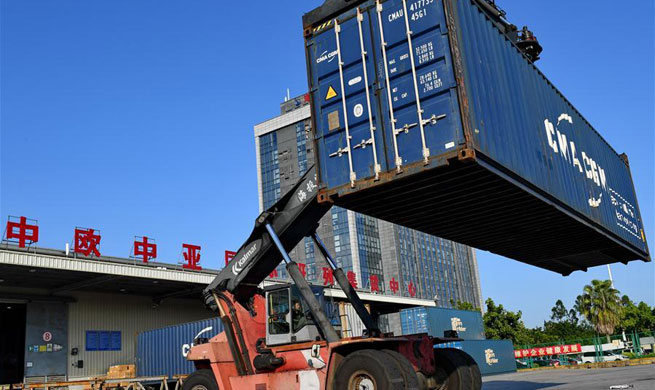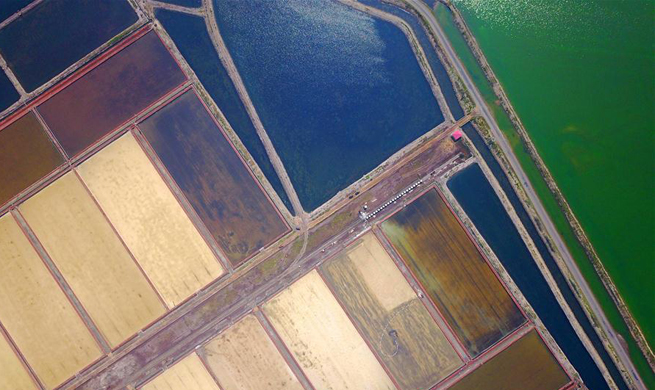MOGADISHU, Aug. 31 (Xinhua) -- An estimated 6.2 million people are facing acute food insecurity in Somalia, a slight decrease from the previously recorded 6.7 million, the UN-backed food security analysis revealed on Thursday.
The Food and Agriculture Organization (FAO)-managed Food Security and Nutrition Analysis Unit (FSNAU) and the Famine Early Warning Systems Network (FEWSNET) assessments show Somalia is unfortunately not yet out of the woods.
The findings from a seasonal assessment conducted across Somalia in June and July indicate that over 3.1 million people will face crisis or emergency food insecurity through December.
"This represents only a slight improvement in food security compared to the figures projected for April-June 2017, primarily as a result of sustained humanitarian assistance and improved rainfall in localized areas," FSNAU said.
"Additionally, nearly 3.1 million people are classified as stressed. In total, 6.2 million people across Somalia face acute food insecurity."
The report said Gu harvest will provide temporary relief for some communities in terms of food availability, but the harvest is reduced due to poor rains and access to food remains constrained and prices will remain elevated through at least early 2018.
The report said malnutrition, one of the leading indicators of the crisis, has reached emergency levels in a number of locations in southern and central Somalia, primarily, though not exclusively among displaced populations.
According to FSNAU, some 388,000 acutely malnourished children are in need of critical nutrition support, including life-saving treatment for more than 87,000 severely malnourished children.
Nearly 895,000 internally displaced people due to drought and conflict, on top of the 1.1 million protracted IDPs that predated this crisis, rely exclusively on assistance for basic services and life support.
The report said Deyr (October-December) rains are expected to be average to below average, but levels of acute food insecurity in Somalia will remain high through the end of the year.
Acute and widespread food insecurity and increased morbidity have contributed to further deterioration of the overall nutrition situation in Somalia.
The UN-backed report said scaled-up humanitarian assistance must be sustained in order to prevent further deterioration of food security and nutrition situation of the affected population.
The 2017 Gu rains started late, ended early and were below average in most parts of Somalia. The Gu season cereal harvest, which is estimated at 78,400 tonnes, is 37 percent lower than the long-term (1995-2016) average.
According to the report, over 701,500 people were displaced due to drought in the first half of 2017.

















